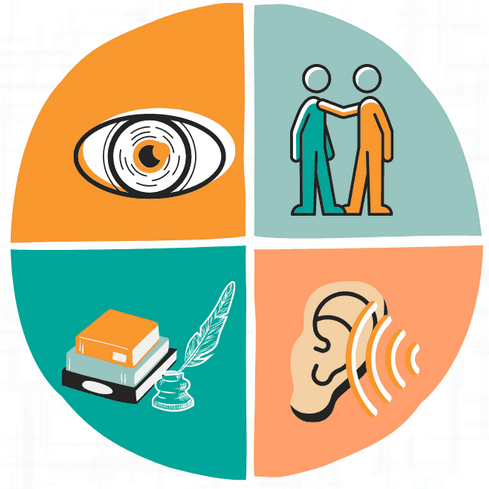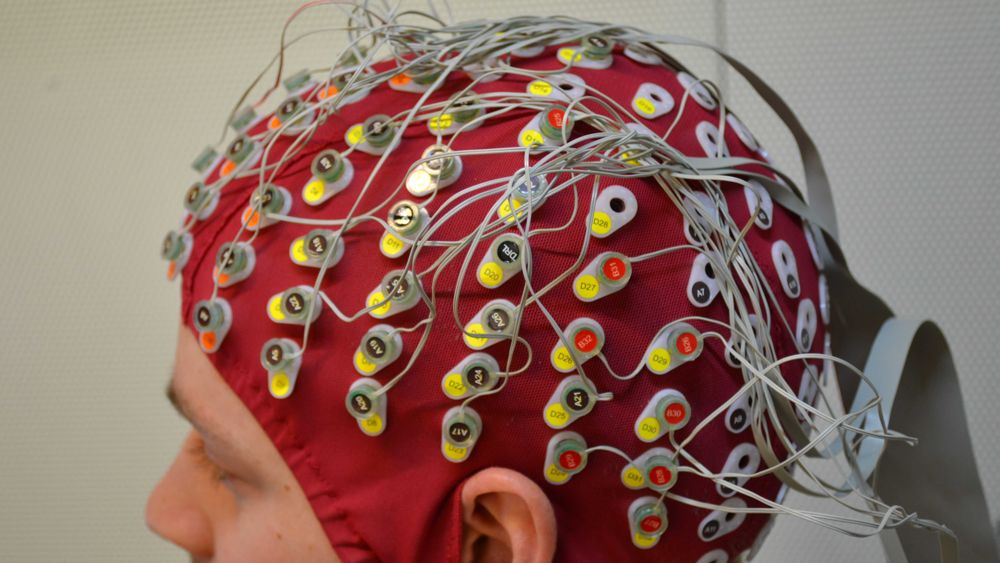Our Research
The PELICAN Lab conducts exciting and novel research in different disciplines. Our main goals are:
- To better understand how sentence comprehension and production change across the adult lifespan;
- To develop new treatment methods for sentence-level impairments in aphasia, and to better understand sentence processing in aphasia;
- To better understand how cognitive processes, such as memory and processing speed, affect sentence processing.
Some of our current research projects are detailed below. Feel free to reach out to us if you would like more information!
Multimodal Processing in Aging and Aphasia
 When we communicate, we use sound, sight, and sometimes reading skills all at once.
But how do we manage to balance and prioritize different sources of linguistic information?
And how is this balancing act affected by aging and aphasia?
When we communicate, we use sound, sight, and sometimes reading skills all at once.
But how do we manage to balance and prioritize different sources of linguistic information?
And how is this balancing act affected by aging and aphasia?
PELICAN lab PhD student Anu Thorat focuses on these important questions in her PhD research. In several experiments with younger and older adults, and individuals with aphasia, she intends to find out more about the complex interplay between auditory and visual linguistic information.
Replicating Aphasia Research
All science relies on replication, the idea that researchers should be able to do other researchers' experiments again and obtain the same results. There is currently a major replication crisis in psychology and other disciplines: studies are simply not replicating. But is this the case for aphasia research? In this project, we are selecting a random set of past aphasia studies and will attempt to conduct the same experiments again.
PELICAN Lab undergraduate students Callie Cody, Sophia Goenaga, and Ashley Hart are working on this project, supervised by PhD student Anu Thorat.
Webcam-based Eyetracking
 Tracking where individuals look when they perform language tasks is a very valuable
source of information for researchers. But this method, known as eye-tracking, has only been available to in-person participants who can be physically present
in a laboratory. The PELICAN Lab is interested in applying eye-tracking online through
participants' own webcams, to extend the reach of our research and make participation
in science available to everyone!
Tracking where individuals look when they perform language tasks is a very valuable
source of information for researchers. But this method, known as eye-tracking, has only been available to in-person participants who can be physically present
in a laboratory. The PELICAN Lab is interested in applying eye-tracking online through
participants' own webcams, to extend the reach of our research and make participation
in science available to everyone!
This project is funded by the American Speech-Language-Hearing Foundation's New Investigators Research Grant. Dr Van Boxtel previously published the first-ever study using online eyetracking with individuals with aphasia: Van Boxtel et al. (2024).
PELICAN Lab undergraduate students Ally Miller, Allie Folse, and Callie Cody are taking the lead on this project.
EEG and Narrative Language
 Can we detect the presence and severity of aphasia just by measuring the electrical
signals from someone's brain? How do brain signals relate to narrative language ability
(storytelling)? The PELICAN lab is interested in deveoping objective assessments of
aphasia through neuroimaging, specifically with a technique known as electroencephalography (or EEG for short), which measures electrical activity on the scalp.
Can we detect the presence and severity of aphasia just by measuring the electrical
signals from someone's brain? How do brain signals relate to narrative language ability
(storytelling)? The PELICAN lab is interested in deveoping objective assessments of
aphasia through neuroimaging, specifically with a technique known as electroencephalography (or EEG for short), which measures electrical activity on the scalp.
PELICAN Lab undergraduate student Ally Miller is leading this project, advised by Dr Van Boxtel.
Production vs. Comprehension in Aphasia 
How are language production and comprehension related? Do they rely on the same cognitive skills and resources? The PELICAN Lab is reviewing existing research on aphasia and conducting a new experiment to answer this question. Do participants with aphasia struggle similarly with production and comprehension? What does this tell us about the nature of language in the brain?
This project is being conducted by PELICAN Lab undergraduate students Allie Folse, Marissa Price, Silvia Rivet, and Victoria Walker.